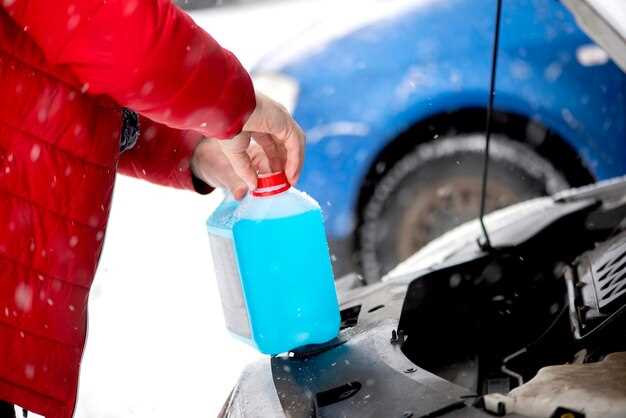
Coolant additives play a vital role in the performance and longevity of various cooling systems, particularly in automotive engines. These additives serve multiple functions, including enhancing the thermal efficiency of the coolant, preventing corrosion, and providing protection against rust and scale formation. While the benefits are apparent, it’s essential to weigh them against potential drawbacks to make informed choices for maintenance and repair.
One of the primary advantages of coolant additives is their ability to inhibit corrosion within the cooling system. Many metals, including aluminum and steel, are susceptible to degradation when exposed to moisture and high temperatures. Additives create a protective layer that significantly extends the lifespan of these components, reducing the frequency of repairs and replacements. Additionally, they often improve the heat transfer capabilities of the coolant, thereby enhancing overall engine efficiency.
On the other hand, there are disadvantages associated with the use of coolant additives. For instance, overuse or incorrect mixing ratios can lead to unwanted chemical reactions that may actually promote corrosion rather than prevent it. Furthermore, some additives can contribute to the buildup of deposits, which can hinder the cooling system’s effectiveness and necessitate more frequent maintenance. Understanding these factors is crucial for anyone responsible for managing and maintaining cooling systems.
Impact of Coolant Additives on Engine Temperature Control
Coolant additives play a crucial role in maintaining optimal engine temperature and preventing overheating. By improving the thermal conductivity of the coolant, these additives enhance heat transfer from the engine to the radiator, allowing for more effective temperature regulation. This is particularly important in high-performance or heavy-duty applications where engines operate at higher temperatures.
One of the primary advantages of coolant additives is their ability to reduce the formation of deposits and sludge within the cooling system. These deposits can obstruct coolant flow, causing localized overheating and potential engine damage. Additives that contain detergents or dispersants help keep the cooling system clean, ensuring that heat can be efficiently dissipated.
Moreover, certain coolant additives are formulated to combat corrosion, which can significantly impact engine efficiency and longevity. Corrosion inhibitors create a protective barrier on metal surfaces, reducing the risk of rust and other forms of deterioration caused by coolant chemistry or environmental factors. By minimizing corrosion, these additives not only extend the lifespan of the engine components but also help maintain effective heat transfer, contributing to better overall temperature control.
| Advantage | Impact on Temperature Control |
|---|---|
| Improved thermal conductivity | Enhances heat transfer efficiency |
| Deposit prevention | Ensures smooth coolant flow |
| Corrosion inhibition | Protects metal surfaces, maintains efficiency |
While coolant additives provide many benefits, it is important to choose the right formulation for the specific engine type and operating conditions. Incompatibility between different types of additives can lead to reduced effectiveness and potential damage to the cooling system. Therefore, regular monitoring and maintenance of coolant chemistry are essential for optimal engine temperature control.
Corrosion Prevention: How Additives Protect Engine Components
Corrosion is a significant threat to the longevity and performance of engine components. Coolant additives play a crucial role in mitigating this risk by enhancing the protective qualities of the coolant. These additives create a barrier against corrosive elements, such as water and oxygen, which can lead to rust and degradation of metal surfaces.
One of the primary functions of coolant additives is to adjust the pH levels of the coolant. By maintaining an optimal pH, typically between 7 and 8, these additives help prevent acidic conditions that can accelerate corrosion. Additionally, many modern coolant formulations include inhibitors, which are specifically designed to protect different types of metals commonly found in engines, such as aluminum, iron, and copper.
Another important aspect of coolant additives is their ability to form protective films on metal surfaces. These films create a physical barrier that limits direct contact with corrosive agents. This is particularly vital in areas where metal-to-metal contact occurs, such as engine cooling passages and cylinder heads.
Moreover, coolant additives can also help neutralize any corrosive compounds that may have been introduced during engine operation. By doing so, they play a pivotal role in maintaining the integrity of vital components, ensuring that the engine runs efficiently and reliably.
In summary, the use of coolant additives is essential for corrosion prevention. They not only help maintain optimal pH levels but also provide protective films and neutralize harmful compounds, thus safeguarding engine components from corrosion and extending the overall lifespan of the cooling system.
Potential Risks of Overusing Coolant Additives

The excessive use of coolant additives can lead to several risks that may compromise the overall effectiveness of the cooling system. One of the primary concerns is the potential for corrosion. While certain additives are designed to protect metal components from rust and corrosion, overapplication can disrupt the delicate balance required for optimal protection. This can result in the formation of harmful deposits that may accelerate corrosion instead of preventing it.
Another significant risk is the possibility of additive interaction. Coolant formulations vary widely, and not all additives are compatible with each other. Overusing or mixing different additives may lead to adverse chemical reactions, producing sludge or precipitates that can clog cooling passages and reduce heat transfer efficiency. This can cause overheating and damage to the engine.
Furthermore, the overuse of additives can alter the chemical composition of the coolant, impacting its boiling and freezing points. This may lead to inadequate protection against thermal extremes, which could ultimately affect engine performance and longevity. To avoid these risks, it is essential to adhere to the manufacturer’s recommendations regarding the use and dosage of coolant additives.
Compatibility Issues with Vehicle Cooling Systems

When considering coolant additives, it’s essential to understand how they interact with the various materials used in vehicle cooling systems. Compatibility issues can lead to significant problems, including corrosion and system failure.
Many vehicles utilize a combination of metals in their cooling systems, such as aluminum, copper, and iron. Using the wrong additive can accelerate corrosion on these materials, leading to leaks and ultimately, costly repairs.
Some key factors that contribute to compatibility issues include:
- Formulation of Additives: Different additives serve specific functions, such as preventing corrosion, reducing cavitation, or enhancing heat transfer. Choosing an additive that does not match the engine’s requirements can lead to ineffective cooling and increased wear.
- Incompatibility with Existing Coolant: Mixing different types of coolants or additives can create chemical reactions that produce corrosive compounds. It’s crucial to use products that are compatible with what is already in the system.
- Material Type: Additives are often designed for specific metal compositions. For instance, some additives are more effective with aluminum and may cause issues when used in systems that have a high copper content.
To avoid corrosion and ensure optimal functioning, follow these guidelines:
- Check the vehicle manufacturer’s recommendations for coolant and additives.
- Do not mix different brands or types of coolants unless specified as compatible.
- Regularly inspect the cooling system for signs of corrosion or wear.
In conclusion, understanding the compatibility of coolant additives with vehicle cooling systems is vital for maintaining performance and longevity. Proper selection and use of additives can prevent corrosion and enhance the overall efficiency of the cooling system.
Cost-Benefit Analysis of Regularly Using Coolant Additives
Regularly using coolant additives can offer substantial advantages, yet it is essential to assess the cost benefits associated with their application. The primary function of these additives is to improve the performance and longevity of the coolant, particularly in protecting against corrosion. Corrosion can lead to significant damage within an engine, resulting in costly repairs and decreased efficiency. By implementing coolant additives, users can mitigate these risks, potentially saving both time and money in the long run.
The initial cost of purchasing coolant additives may seem high, particularly for those on a tight budget. However, when evaluating the potential expenses associated with corrosion damage, which can include radiator replacements, engine overhauls, or even diminished vehicle performance, the investment often pays off. Essentially, the money spent on additives can be viewed as insurance against more significant financial setbacks.
Furthermore, the use of these additives can enhance the thermal efficiency of the coolant system. Improved heat transfer capabilities can help maintain optimal engine temperatures, reducing the likelihood of overheating, which is another leading cause of engine damage. This aspect not only prolongs the life of the vehicle but also increases its resale value due to a well-maintained engine.
While there are undeniable costs associated with the purchase of coolant additives, the long-term benefits, such as reduced maintenance expenses and increased engine lifespan, provide a compelling argument for their regular use. Making informed choices about coolant additives can lead to significant savings, making them a valuable addition to vehicle maintenance practices.
Environmental Considerations of Coolant Additive Usage
Coolant additives play a vital role in enhancing the performance and longevity of cooling systems in various applications. However, their environmental impact is a significant concern that warrants attention. Many coolant additives contain chemicals that can contribute to corrosion within cooling systems. While this can lead to better heat transfer and system efficiency, the leaching of these chemicals into soil and water systems poses risks to ecosystems.
The potential for environmental contamination is one of the main disadvantages of certain coolant additives. When coolant systems are not properly maintained or disposed of, harmful substances can escape and enter the environment. This can affect local flora and fauna, leading to disruptions in ecological balance. Additionally, the persistence of some of these chemicals in the environment raises questions about long-term effects on human health and biodiversity.
On the positive side, some manufacturers are developing environmentally friendly coolant additives designed to minimize toxicity and corrosion. These alternatives often utilize biodegradable materials that reduce the risk of environmental degradation. Selecting such additives can significantly lower the potential negative impact on ecosystems while still providing effective protection against corrosion.
In conclusion, while coolant additives are essential for maintaining system efficiency and preventing corrosion, their environmental implications must be carefully considered. Opting for biodegradable and non-toxic alternatives can help mitigate negative environmental effects, promoting a more sustainable approach to coolant use.
